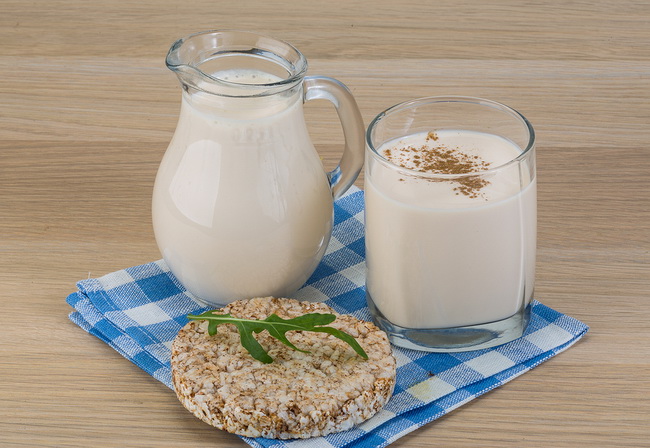- Make It Yourself Lavender Heart-Shaped Bath Bombs!
- 20 Things You Never Knew About “Down There”
- 12 Best Foods For Those Suffering From Arthritis Pain
- 12 Personal Hygiene Mistakes Almost Everyone Makes (Mom Never Told You About #4!)
- 15 Medicinal Plants And Herbs From The Cherokee People
- 12 Mind-Blowing Benefits Of Drinking Coconut Water During Pregnancy
- 12 Outstanding Winter Foods That Won’t Fatten You Up Like A Christmas Turkey
11 Amazing Benefits of This One “Grainy” Drink

Photo credit: bigstock.com
6. Supports Detox
Found everywhere in our environment, mutagens are various agents that can alter and damage your DNA. Aflatoxins are food born toxins generally created by mold and are found in all sorts of foods such as grains, vegetable oils, and ground nuts, such as peanuts. They can cause severe allergic and immune reactions. Since kefir is super rich in lactic acid bacteria, kefir can kill dangerous fungi, such as aflatoxins, and remove them from the body, making this a powerful detox tool that you can drink every single day. Find out more detox recipes.
7. Improves Bone Health
Osteoporosis is a thinning of the bones and is a huge problem in many western countries. This is a severe problem especially among elderly females. Ensuring that sufficient amounts of calcium are consumed is one way to improve bone health and slow the progression of osteoporosis. Kefir that is made from full-fat cow or goat’s milk is a great way to get calcium and vitamin K2, which is vital for the proper metabolism of calcium. Consuming calcium and vitamin K2 has been shown to reduce the risk of fractures by more than 80 percent. Studies done with animals show that kefir can increase the amount of calcium by the bone cells, which will lead to improved bone density.
8. Well-Tolerated by the Lactose Intolerant
Dairy products contain a type of natural sugar called lactose. Many adults find that their bodies are unable to break down these sugars. When this happens, we refer to this condition as lactose intolerance. Fermented dairy products, such as yogurt and kefir, change the lactose into lactic acid, which makes these foods much, much lower in lactose than regular milk or other unfermented milk products such as cheese and ice cream. Kefir also contains other enzymes which help to break down the lactose in milk even further. Many people who are lactose intolerant find that they have no problems digesting kefir.
Continue to Page 4
































